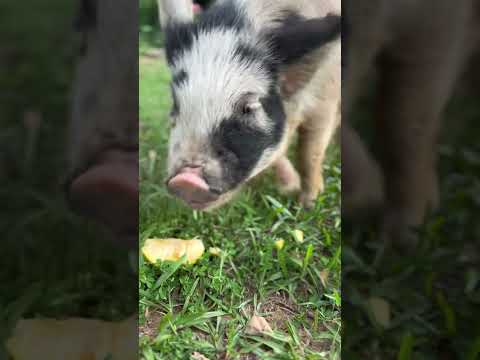The Kindness Backlash: My Farm Life Struggle
Life on the farm has a funny way of teaching lessons you didn’t sign up for. Most days it’s mud on your boots, hay in your hair, and animals who think you exist solely to provide snacks. But lately, my biggest challenge hasn’t been runaway chickens or fence repairs—it’s been kindness. Yes, kindness. And more specifically, the backlash that comes with it.
See, I’ve always believed in being generous. Offer a neighbor eggs, lend a hand when someone’s tractor breaks down, or even post a few heartwarming farm moments online to brighten someone’s day. It started small—me sharing a silly video of Henry the donkey braying at sunrise, or my goats staging a jailbreak in the garden. People laughed, people smiled, and I thought, “Hey, this is good. A little kindness goes a long way.”
But what I didn’t realize is that kindness, once it grows wings, has a way of flying back at you with some sharp talons. For every comment that says, “This made my day,” there’s another that mutters, “This isn’t real farm life” or “You’re too soft to be a farmer.” Apparently, there’s a secret rulebook I missed: farmers are supposed to be tough, gritty, and not prone to posting videos of themselves hugging donkeys. Who knew?
The backlash hit harder than I expected. At first, I brushed it off—everyone’s entitled to an opinion. But after a while, the negativity started seeping into my chores. I’d be out feeding the chickens, replaying strangers’ voices in my head: You’re not authentic enough. You’re doing it wrong. You’re too kind. Too kind? Since when did kindness become a liability?
One morning, I trudged to the barn feeling the weight of it all. Henry gave me his usual side-eye, Franklin the rooster crowed dramatically late as always, and I stood there wondering if maybe I should toughen up. Maybe kindness had no place in the mud and sweat of real farm life.
And then it happened. A little girl and her grandmother pulled up by the fence. They’d been following my videos, and the grandmother explained that her granddaughter had been struggling—new school, hard days, missing her dad who was deployed overseas. But watching my animals, hearing my silly commentary, had become their morning ritual. “It makes her laugh before school,” the grandmother said softly. The little girl waved shyly, holding a drawing she’d made of Henry.
In that moment, every ounce of backlash melted away. The negativity, the judgment, the second-guessing—it all paled in comparison to the joy I saw in that child’s face. My kindness might not fit everyone’s definition of “authentic farm life,” but it had found a home where it mattered.
That’s the thing about kindness: it’s not always applauded, and it’s rarely perfect. Sometimes it gets mocked, misunderstood, or dismissed. But kindness has ripple effects you can’t always see. For one person, it might be a laugh on a hard day. For another, it might be hope in the middle of struggle. And for me, it’s the reminder that soft doesn’t mean weak—it means strong enough to choose compassion in a world that often forgets it.
So yes, the kindness backlash is real. But so is the power of choosing it anyway. Out here on the farm, between the brays and the clucks, I’ve decided I’ll keep leading with kindness—even if it means struggling through the noise. Because sometimes, the smallest spark of softness is exactly what someone needs to light their way.


